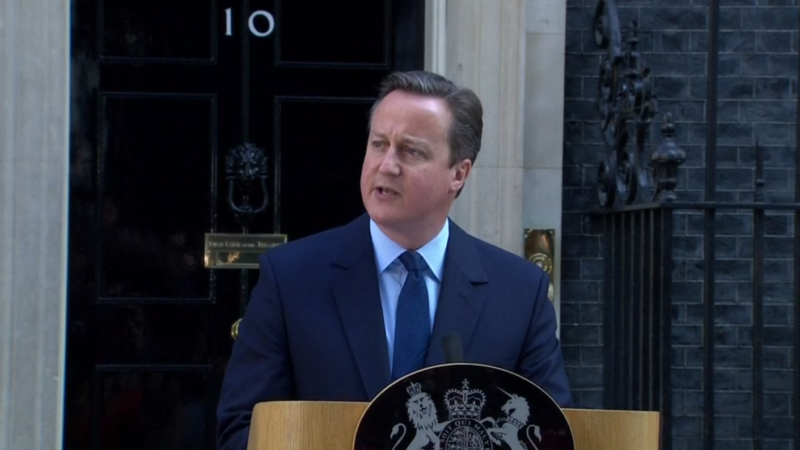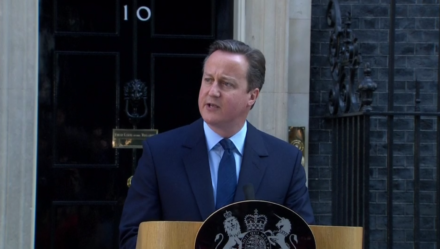

As his parting gift to the nation following that disastrous Brexit vote (as if that wasn’t enough), David Cameron the outgoing PM decided to exercise his discretionary power to bring forward a “resignation honours list”. The list was shocking in its levels of unabashed ‘cronyism’. Gongs galore for Tony donors, Conservative Party staffers, the head of the failed Stronger In campaign, and most bizarrely of all a CBE for Samantha Cameron’s personal stylist. Against this backdrop it was almost surprising not to see Larry the Cat knighted. This truly awful list was surely the apogee of Cameron’s nonchalant Etonian arrogance having just overseen the trashing of Britain’s place in Europe and with it, potentially, the economic fortunes of the nation.
Closer to home, the past couple of weeks have witnessed outrage in some quarters at the offer by the Leader Jeremy Corbyn and acceptance of a peerage by Shami Chakrabarti, who only very recently published a report into alleged anti-semitism in the Labour Party, the conclusion of which was in effect an absolution of the Party of the allegations levelled against it.
The challenger for the Labour leadership, Owen Smith, has since criticised the Chakrabarti report, saying that he believes the conclusions are weak and the scope and framework of the report insufficiently wide. Whatever one’s take on the quality of the report and the validity of its scope, it was surely ill-advised timing by Jeremy Corbyn to choose the moment of Cameron’s so-called “resignation honours list” to choose Chakrabarti as his lone nominee for elevation to the Lords, a matter of weeks from the date of publication of her report into anti-semitism that he had personally commissioned.
As a lawyer myself and someone with a huge interest in human rights law and a personal commitment to the Human Rights Act 1998 (a Labour government achievement, and something Theresa May has for a long time threatened to repeal), I would certainly not question Chakrabarti’s calibre and suitability for a public service award.
Indeed, my deep respect for Chakrabarti’s record as Director of Liberty makes the timing and appearance of this appointment all the more disappointing. There is a sad irony that Chakrabarti’s appointment is being presented by the leadership as a means of bringing some ‘purity’ to the second chamber. The tawdry circumstances of her appointment have arguably put paid to that, at least for now.
But the affair arguably has wider implications for public life. The Brexit vote was, in part, symptomatic of a breakdown of trust in politicians and political institutions. As I have previously alluded to, this breakdown of trust has resulted in a rise of populism across the western world.
It is a basic (and seemingly obvious) principle, but it is worth reiterating that in a democracy politicians have a fundamental duty to avoid the appearance of nepotism and corruption. Similarly, with bias. Politicians must avoid the appearance of bias as well as not actually exercising bias. Otherwise it is very much a slippery slope.
I would argue that the archaic honours system has some merit to the extent that it is used to recognise and express public gratitude for genuine, disinterested public service. But too often the system is abused and used for party political patronage and the rewarding of misplaced loyalty within the civil service. This has long been part of the British system of government, but it runs contrary to the British ideal and virtue of “fair play” and is something many feel deeply uncomfortable with as a perceived vestige of Empire. Let’s face it, the honours system is part of the wider culture of corrosiveness that has eroded and eventually smashed public confidence in political parties and, arguably, the state itself.
Owen Smith, who attacked Cameron’s resignation honours list as “blatant cronyism”, has acknowledged the problem and announced that if elected he will place a five year moratorium on honours being bestowed on Labour donors, Labour MPs, advisers to the Party or indeed Labour Party staffers. As part of his plan such a moratorium would only be lifted once a complete overhaul of the honours’ system had been completed.
Jeremy Corbyn has successfully attracted many people on the left to join or rejoin the Labour Party and sought to refashion politics in this country. In this spirit he should spearhead a campaign to clean up politics by committing the Labour Party to reform or complete abolition of the honours system, unless it can be ensured that the system will not continue to be open to abuse by unscrupulous politicians seeking to bestow patronage where it really ought not to be bestowed.
Cat Overton is a lawyer and treasurer of Tower Hamlets Labour Party




More from LabourList
‘Labour won’t stop the far right by changing leaders — only by proving what the left can deliver’
‘Cutting Welsh university funding would be economic vandalism, not reform’
Sadiq Khan signals he will stand for a fourth term as London Mayor